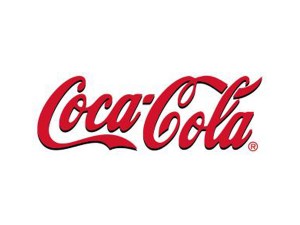Coke marks centennial with projects for kids, women

The programs are maintained by Coca-Cola Philippines as part of its corporate social responsibility (CSR) for its centennial year here.
Adel Tamano, Coca-Cola Philippines ambassador, said that the CSR programs are aimed at the well-being of the people, communities, and the world.
“We want to make a substantial difference in the lives of our customers, and the lives of the communities where we serve and we operate,” he said during a press briefing in Makati on Wednesday.
In line with this focus, Tamano said the company had developed four programs that it hoped would make a large impact and would be sustainable for its beneficiaries.
Juice for kids
The first program, called the NutriJuice Program, is aimed at the personal well-being of children and seeing them grow healthy.
The company, in cooperation with the Food and Nutrition Research Institute (FNRI), has developed NutriJuice, a noncommercial juice enriched with vitamins and minerals. It is given for free to schoolchildren aged six to 12 years to help them combat iron deficiency anemia, which could hamper their development.
“Coca-Cola has country-specific nutrition programs, and here in the Philippines, we’ve determined that iron deficiency is prevalent. The FNRI has identified areas where the risk of iron deficiency anemia is high, so that’s our priority, and we choose those areas,” Tamano said.
Since its launch in 2008, he said, the program has provided NutriJuice to 200,000 students nationwide, including thousands of students in public elementary schools in Marikina.
“I was there a couple of months ago when we started the NutriJuice program in Marikina, and this coming school year, we will continue that in several schools there,” Tamano said.
The company expects to serve NutriJuice to 35,000 additional schoolchildren in the coming school year.
Sari-sari stores
Another CSR program the company developed is the Sari-Sari Store Training and Access to Resources (STAR) Program which, according to Tamano, aims to strengthen the entrepreneurship skills of women.
Tamano noted that some 60 percent of Coca-Cola Philippines’ product sales come from traditional retail or sari-sari stores, and that about 90 percent of those stores are established and run by women.
“It’s really a recognition of how important women are, not just to our business, but how important women are as an engine of economic growth for the Philippines, that we embarked on this program,” he said.
Gilda Patricia Maquilan, manager of the company’s government and industry affairs section, said that the STAR program provides women sari-sari store owners with basic entrepreneurship training, access to capital and merchandising, peer mentoring and nurturing until their businesses become stable.
Empowerment targets
The program is part of Coca-Cola’s global push to empower 5 million women entrepreneurs by 2020, with the Philippines pledging to empower 100,000 women sari-sari store owners by that year.
To date, Maquilan said the company said that 10,000 women have enlisted or have finished the program.
“While our other projects are located in rural areas, the STAR program is mostly implemented in key cities. Here in Metro Manila, we have women from Manila and Pasay City who are under the program or have graduated from it,” she said.
The company’s two other programs are more focused on the countryside.
The Little Red Schoolhouse project, aimed at improving access to primary education for poor children and remote areas in the country, turned over its 100th school in November last year.
Tamano said the company is working to build 10 more schoolhouses this year, in partnership with the Philippine Business for Social Progress. It recently turned its 101st schoolhouse in Sta. Rosa, Laguna.
Ram pumps
Finally, Coca-Cola is also promoting environmental well-being through its Agos (flow) Ram Pump, where the company installs a ram pump, a 200-year-old technology for pumping water uphill through kinetic energy, in upland communities where there are no nearby sources of fresh water.
The company, in partnership with Earth Day Network and Alternative Indigenous Development Foundation Inc., which won a Ramon Magsaysay Award in 2011 for pioneering the use of ram pumps, has already installed 25 pumps in upland communities since 2011.
The company has committed to install 100 pumps by 2014.
